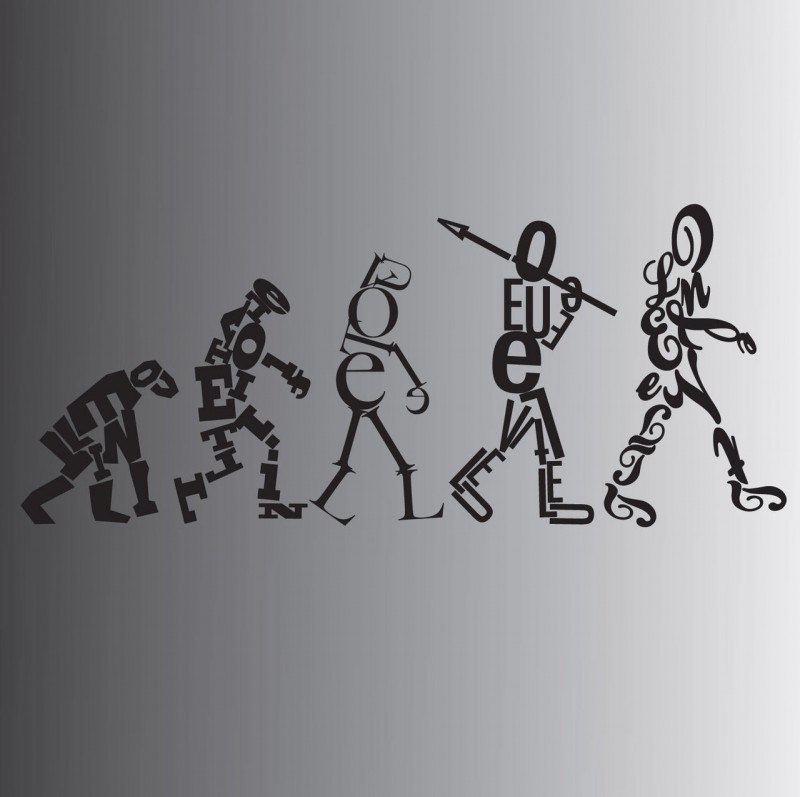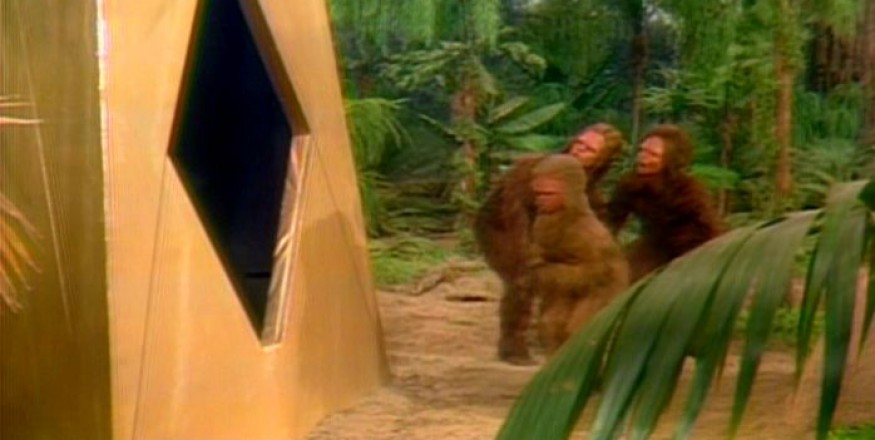 x
x
A new animal was abroad on the planet, spreading slowly out from the pampas. It was still so rare that a hasty census of might've overlooked it, among the teeming billions of land- and sea-roving creatures. There was no evident (not yet) that it would prosper or even survive: on this world where so many mightier beasts had passed away, its fate still wavered in the balance.405Please respect copyright.PENANAiIbQHoARXM
In the hundred thousand years since the Pylons had descended upon lower South America, the Pakuni had invented nothing. But they had begun to change, and had developed skills that no other animal possessed. Their bone clubs had increased their reach and multiplied their strength; they were no longer defenseless against the predators with whom they had to compete. The smaller carnivores they could drive away with their own kills; the larger ones they could at least discourage, and sometimes put to flight.
Their massive teeth were growing smaller, for they were no longer essential. The sharp-edged stones that could be used to dig out roots, or to cut and saw through flesh or fiber, had begun to replace them, with immeasurable consequences. No longer were the Pakuni faced with starvation when their teeth became damaged or worn; even the crudest tools could add many years to their lives. And as their fangs diminished, the shape of their face started to alter; the snout receded, the massive jaw became more delicate, the mouth able to make more subtle sounds. Speech was still a million years away, but the first steps toward it had been taken.
And then the world began to change. In four great waves, with 200,000 years between their crests, the Ice Ages swept by, leaving their mark on all the globe. Outside the tropics, the glaciers slew those who had prematurely left their ancestral home; and everywhere they winnowed out all the creatures who could not adapt.
When the ice had passed, so had much of the planet's early life---including the Pakuni. But, unlike so many others, they had left descendants; they had not merely become extinct---they had been transformed. The toolmakers had been remade by their own tools!
For in using clubs and flints, their hands had developed a dexterity found nowhere else in all of nature, allowing them to make even better tools, which in turn had developed their limbs and brains even more. It was an accelerating, cumulative process; and at its end was Man.
The first true men had tools and weapons only a little better than those of their ancestors one million years ago, but they could use them with far greater skill.
And somewhere in the misty centuries that had gone before they had invented the most vital tool of all, though it could be neither seen nor touched. They had learned to speak, and so had won their first great victory over Time. Now the knowledge of one generation could be handed on to the next, so that each age could profit from those that had gone before.405Please respect copyright.PENANAZUl3s4uSO3
Unlike the animals, who knew only the present, Man had acquired a past; and he was starting to grope toward a future.405Please respect copyright.PENANAn26zDFxKpt
He was also learning to harness the forces of nature; with the taming of fire, he had laid the foundations of technology and left his animal origins far behind. Stone gave way to bronze, and then to iron. Hunting was succeeded by agriculture. The tribe grew into the village, the village into the town, the town into the city. Speech became eternal, thanks to certain marks on stone, then clay, then papyrus. Presently he invented philosophy and religion. And he peopled the sky, not altogether inaccurately, with gods.405Please respect copyright.PENANASFgIGdeo88
As his body became increasingly defenseless, so his means of offense became steadily more frightening. With stone, bronze, iron and steel he had run the gamut of everything that could puncture and slash, and quite early in a time he had learned how to strike down his targets from a distance. The spear, the bow, the gun, and finally the guided missile had given him weapons of unlimited range and all but unlimited power.
Without those weapons, often though he had used them against himself, Man would never have conquered his world. Into them he had poured his heart and soul, and for ages they had served him well.
But now, as long as they existed, he was living on borrowed time.
ns 15.158.61.8da2





















